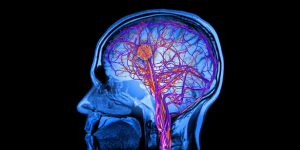 Researchers at NYU and Johns Hopkins Universities have found that a single dose of the psychedelic compound in magic mushrooms, psilocybin, can diminish depression and anxiety related to dying in advanced cancer patients. Roland Griffiths (researcher as Hopkins) believes that psychedelic drugs are powerful tools for treating conditions including drug/alcohol abuse, depression and PTSD; they are not just for exploring the human mind.
Researchers at NYU and Johns Hopkins Universities have found that a single dose of the psychedelic compound in magic mushrooms, psilocybin, can diminish depression and anxiety related to dying in advanced cancer patients. Roland Griffiths (researcher as Hopkins) believes that psychedelic drugs are powerful tools for treating conditions including drug/alcohol abuse, depression and PTSD; they are not just for exploring the human mind.
The Experiment
Volunteers came to doctors with a fear of dying and stress about their illness. People were interviewed and counseled for over 8 hours before they were chosen for the experiment. Griffiths and Stephen Ross (NYU researcher) administered laboratory-synthesized psilocybin to 80 patients with life-threatening cancer. More than 75% of participants reported significant relief from depression and anxiety. Administration of drug was carefully monitored and supported with counseling services.
The Experience
Overall, the experiment had a healing effect for all those involved. The dose of psilocybin doesn’t result in every participant believing in life after death. However, it was effective in creating a deeper meaning and understanding of the situation. The psilocybin was able to show patients that there is nothing to be fearful of and that everything is going to be okay. Participants were able reassure loved ones that it is okay and they don’t need to worry about what was to come because everything was going to work out. The psilocybin was helpful in relieving the agony of the inevitability of death. Many reported that their experience using psilocybin was one of the most important experiences of their life.
The Results
Griffith and Ross found that larger doses of psilocybin were more effective and ‘mystical-type experiences’ showed greater changes in levels of depression and anxiety. There are always concerns and risks that come with experiments. In the case of psilocybin, about 1/3 of patients reported a sense of fear or discomfort. Doctors were there to comfort patients and remind them of where they were and that they were under the influence of psilocybin. However, is almost all cases, the experience was cathartic and resulted in personal understanding.
Find out more: https://www.scientificamerican.com/article/psilocybin-a-journey-beyond-the-fear-of-death/

